
Zelle is a popular platform that makes it easy for anyone to send money to their loved ones or pay for a service. While it helps users, many scammers and thieves have made it a hotspot to hunt for their next victim. These entities can use any trick to convince you to transfer an amount to them.
As the saying goes, Knowledge is Power. Hence, being aware of the popular tricks these scammers use can help you avoid falling victim. This article discusses the most common scams on Zelle in 2025.
The Popular Zelle Scams – Quick List
Below are the 13 most common Zelle frauds in 2025:
What is a Zelle Scam, and How Does it Work?
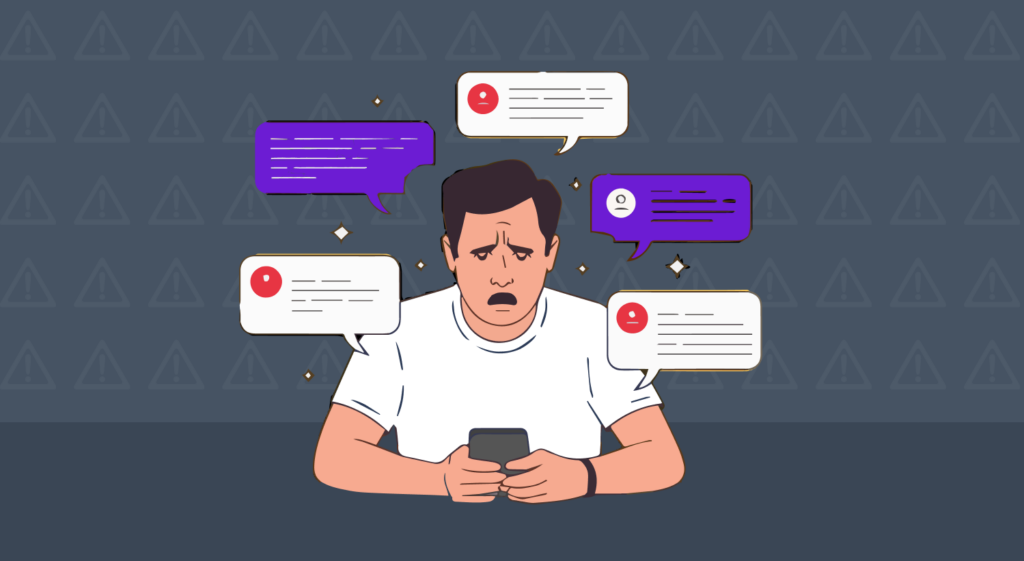
A Zelle scam is any type of financial fraud in which criminals use the Zelle platform to conduct their operations.
These scams can range from fake listing in an online marketplace to a sophisticated plan involving impersonating your bank. The end game for all these scams is to drain your Zelle account of any money they can get.
These scams works by taking advantage of the platform’s ease of use. Because any money transferred on the platform reaches the recipient immediately, the scammer can instantly withdraw all the money from their account. This makes it difficult for their victims to get their money back once the transfer has occurred.
However, Zelle is one of many payment services susceptible to these scams. Venmo and Cash App scams, amongst others, are also on the rise, and scammers tend to use similar methods to attract new victims. Let’s discover more about these scams in detail.
13 Common Frauds on Zelle – Detailed List
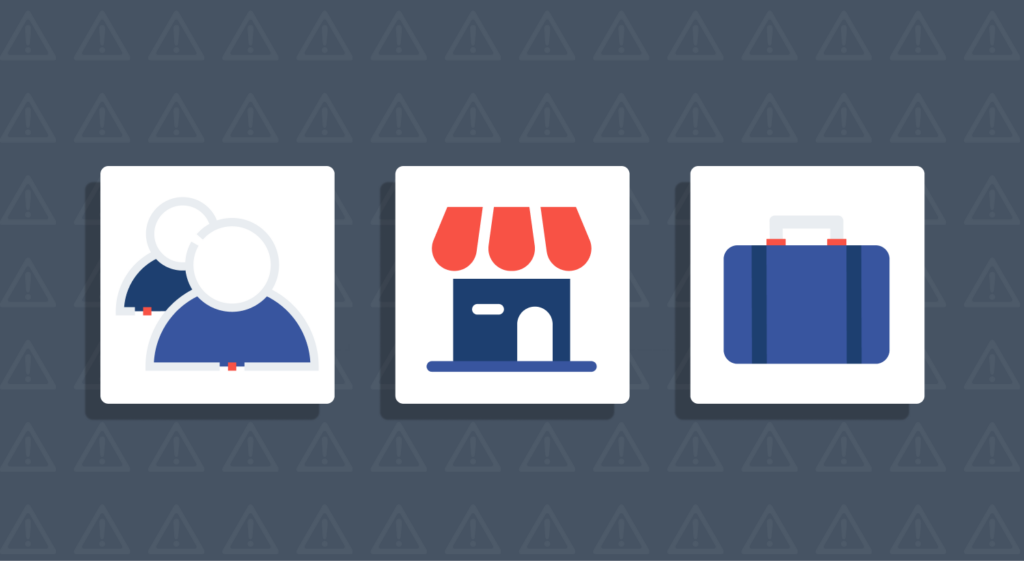
1. Impersonating Friends and Family
Here, the scammer pretends to be a close friend or a family member. They can even disguise themselves as a colleague in your workplace with whom you have a close relationship. The criminal will get information about you and the person they are impersonating from social media or other means.
Next, the criminal will send a text message or email saying they are in an emergency and want you to send money to them via Zelle. These scams can be challenging to catch as the masterminds are slick. You may act emotionally, as the person impersonated may be someone you care deeply about. That’s how the money will get sent without any second thought.
These criminals can even jump on a convincing video or phone call to request money with the help of deep fake technologies. To prevent these scams from happening, you must carefully read any message received before sending the money. Moreover, if anything happens like this, try reaching out to the person whom the criminals are impersonating.
Even better, try creating a code word you can use with your friends and family during emergencies to help confirm their identity in case they ever need an urgent Zelle transfer.
2. Account Takeovers
This type of scam can take place in different forms, but the end goal remains the same—to gain total control over your account. The scammer will then be able to transfer all the money available in your account to theirs.
Before this scam can occur, the scammer must have obtained your personal information, such as your name, email address, or phone number. They will then use this information to trick you into exposing your account login details or passwords, allowing them to gain complete access to your Zelle account.
Usually, account takeovers start with an email or text message stating that you have an issue with your account. It may even look like a message from your financial institution. These messages will come with a link that, once clicked, exposes your login information to the hacker/scammer.
To be on the safe side, never click on any unknown link in a text message. If you often receive these messages, contact your bank directly and confirm with them if an issue exists.
3. Employment Scams
This scam starts with a fake job listing or remote work opportunities. It asks you to perform a simple and short application process to get a job. Once you are done with the application process, you will get hired. Sounds nice, right? But that’s where the scam begins.
During the onboarding process, they will tell you that you have to pay for educational or training materials that can help you grow in your job role. Some even go as far as offering a free laptop or complete remote workstation. The only thing is that you have to pay the shipping fee and insurance. They will request these payments via Zelle. Unfortunately, there will be no job; the scammer will run off with your money as soon as you pay.
However, you can prevent these scams. Whenever a job you applied for asks you to send any money, either when applying or after you are accepted — run away. No legal employer will ask you to pay a fee if you want to start working with them.
4. Online Marketplace Scams
Various online marketplaces, like OfferUp and Facebook, have quickly become a free space for scammers to find their next target. This scam type can affect both buyers and sellers. Let’s explain how each party can get scammed.
Seller Scam
These scammers disguise themselves as legit vendors selling products. They will post a product on the online marketplace they don’t have available. When a buyer contacts them to make a purchase, they will request the buyer pay in advance for the product using Zelle.
For instance, a scammer can say there is a line-up of other buyers waiting to buy the product, but you can get the product if you transfer a certain amount upfront.
Fake Buyers
If you are selling a product on one of these online marketplaces, a scammer may contact you to purchase your product. They will offer to make payment using Zelle and request your email. However, they will send you a phishing mail, which will help them get your account login details or convince you to send money to them.
5. Business Account Scams
It is also known as a Zelle upgrade scam. It involves the scammer asking you to pay a fee to upgrade your account to a business account. This type of scam often happens alongside the online marketplace scam.
For instance, you put up an expensive item to sell in a Facebook marketplace. A scammer can contact you and offer to pay immediately for the item. They will get back to you after ‘attempting’ to transfer the money saying that the transfer wasn’t successful as your account has not yet been upgraded to a business one.
The scammer will then send you a fake email or text message pretending to be a Zelle representative, instructing you on the steps to upgrade your account. Of course, you will need to pay an upgrade fee, which will end up in the scammer’s account.
To prevent yourself from falling victim to this scam, never pay an upgrade fee for your account. The app won’t charge you extra, even if you are a business or want to get extra features and services
6. Street Scams
While most scams are via email or text, some scammers prefer to do it face-to-face. A street scam can happen in two different ways.
Request to Transfer Money for Cash
This type involves someone walking up to you and asking if you have a Zelle account. Once you say yes, they plead for you to give them cash, but they will transfer the money online. When you open your app, they collect your phone to get your account information. Instead, they will use this open opportunity to send all the money in your account to themselves.
Phone Borrowing
This also involves someone walking up to you and saying that their phone’s battery is low or that they forgot it at home. The scammer will request to make a quick call to someone, claiming it’s an emergency. Once you hand over your phone, they will quickly locate your banking apps like Zelle and try to transfer money to themselves. While doing this, they pretend to be making the phone call or typing the person’s phone number.
The best way to avoid both scenarios is not to give your phone to any stranger, regardless of the reason. If they really need immediate help, make the emergency call yourself.
7. Romance Fraud
Romance scams have increased as social media and dating apps are becoming popular. In a romance scam, the con artist reaches out to their target online or on a dating platform. Mind you, they will fill their profile with fake information, including a fake profile photo, name, and address.
The scammer then creates a connection with their target, and once they feel there is mutual trust between both parties, they request a sum of money, claiming an emergency. They will ask that the target send the money only through Zelle and not any other platform.
A victim of romance scams will find it hard to recover their funds as the money was willfully sent, and there is no sign that their account was hacked. To avoid falling for this scam, limit the connections you make with unknown people and never share too much of your information on social media and dating platforms.
8. Charity Scams
Charity scams always involve the fraudster posing as a charity organization seeking donations. This often happens after a high-profile event, like an earthquake or flood. The scammer requests donations to help the people affected by this natural disaster. As you know, that’s a lie, and the scammer pockets the money.
You can avoid this scam by only dealing with legitimate charity organizations. These organizations will always offer a safe or alternative means for you to help their cause. If they insist you make a payment using only Zelle, that’s a sign that something is wrong.
9. Refund Scams
Scammers who use this method target former victims of a different Zelle scam. In this scam type, the con artist contacts the victim as if they already have the victim’s contact information. They pretend to be from the banking app and offer to help recover the stolen funds.
Unfortunately, the recovery process will cause you to lose money as they will take you through a well-thought-out fake refund process. You can easily prevent this from happening by dealing directly with Zelle, law enforcement, or your bank after you initially get scammed.
10. Investment Scams
This is a confidence scam in which the fraudster uses fake materials and credentials to convince people that they are experts in business and investment. The fraudster then explains that the golden investment opportunity requires a down payment to save a spot, as the investment is gaining popularity.
Once you transfer the initial payment, the scammer proceeds to the next stage and claims that you have gained massive profits from your initial payment. They can even show you picture proof, which is most likely fake. The scammer will then ask for additional investments to increase your returns. If sent, you’ll be scammed.
You can avoid these investment scams by not using Zelle to start any investment. No legal organization will request that you specifically send them funds. Also, perform thorough research before you make any investment. Confirm that the financial advisor or salesperson is who they say they are before you think of transferring any money.
11. Event Ticket Scams
Tickets for music concerts, festivals, or sporting events with intense popularity sell out fast. When this happens, people come online to sell their tickets, maybe due to changed plans or because they just have extra. Scammers take advantage of this situation to prey on innocent victims.
In this scam, you will see fake advertisements for non-existent tickets for popular shows. The scammer will make everything look legit, including detailed ticket information and pictures. Once you pay, you won’t receive any tickets, as the transaction was bogus.
12. Lottery and Prize Scams
Here, you will receive a notification claiming you won a prize, sweepstake, or lottery. While this is good news, you will also learn that you must pay some security deposit or transaction fees to retrieve your supposed winnings. However, the winnings don’t exist.
13. Craigslist Scams
On the Craigslist platform, con artists can claim overpayment or sell a property that is not theirs. They can post an apartment for rent, and ask you to make you pay a hefty security deposit using Zelle, and sign a fake lease. However, when you tour the house, you will see that it was never put up for rent or sale.
In the case of overpayment, an interested buyer may contact you about an item you posted on Craigslist. This fake buyer will pay using a cashier’s check, which will contain an amount higher than the agreed price.
The buyer will urge you to deposit the cashier’s check and send them the balance via Zelle. However, the bank will flag the check as a counterfeit, and if you have already sent the money, you’ve fallen victim to this scam.
To avoid falling into this scam, make sure to confirm that the check is authentic before you make any transfer to the buyer.
How Can You Avoid Frauds on Zelle?
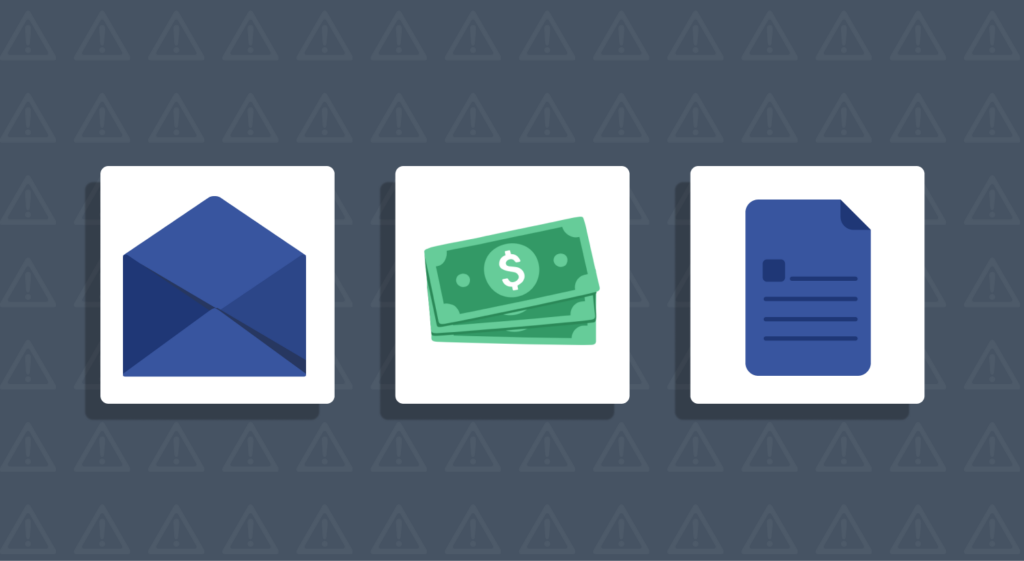
It’s advisable that you only use the app to transfer money to people you know and trust. However, if there is ever a situation that involves you sending money to outsiders, here are some safety measures you should take:
- Transact using your Zelle email: If you are not familiar with the person you are sending money to, you should perform the transaction with an email address.
- Double-check payment requests: Whenever you get a payment request from an unknown recipient, confirm that the money transferred reaches the intended person. This is because any transaction made between two Zelle accounts can’t be canceled. You can do this by transferring $1.00 to test to confirm that the recipient is the right person.
- Enable two-factor authentication: 2FA is a verification process that ensures no one can access your account without you receiving a text message or email or having access to your authenticator app. Make sure that you don’t share these codes with any outsider.
- Check for social engineering signs: Most scammers operate by trying to build a relationship with their target. This is so that they can build trust with the person and have the person send them any amount they request. If you experience any dramatic, romantic solicitations or overly friendly gestures from an unknown person, treat it as a red flag.
- Regularly inspect your bank statements and credit report: One sign that you may have fallen victim to identity theft is if you start seeing strange transactions on your bank accounts or statements. Monitoring your transactions regularly can alert you of any fraud with your account.
- Question urgent payment requests: Once you get a payment request with a tight deadline or anything that will scare you, don’t let that misguide you into making a payment. You should still assess the situation before you transfer the money.
- Consider using credit monitoring and identity theft services: Many platforms can help you monitor your online accounts and offer real-time fraud alerts. These platforms will flag suspicious transfers and transactions that exceed your spending limits.
What to Do If You Become a Victim of a Zelle Scam?
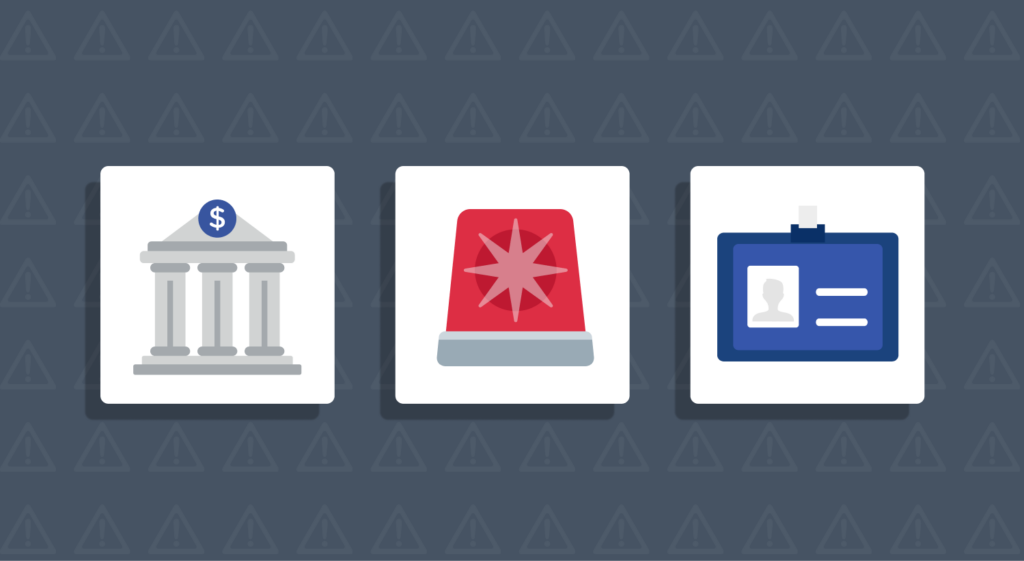
If you happen to fall victim to any of the scams mentioned above, here’s what you can do about it:
- Notify your bank: Zelle partners with many financial institutions in the United States. So, if you get scammed, you should first contact your bank and report the issue.
- Submit a police report: A police report is one of the documents your bank will ask of you. Filing one will help you expedite the process with your bank.
- Modify your passwords: Once you fall victim to a scam, the scammer may obtain your login information. Ensure you change the passwords to your bank app, email, Zelle account, and any other app where you store your credit/debit card details. You can use a password generator to help you create a strong password.
Why are Zelle Scams On the Rise?
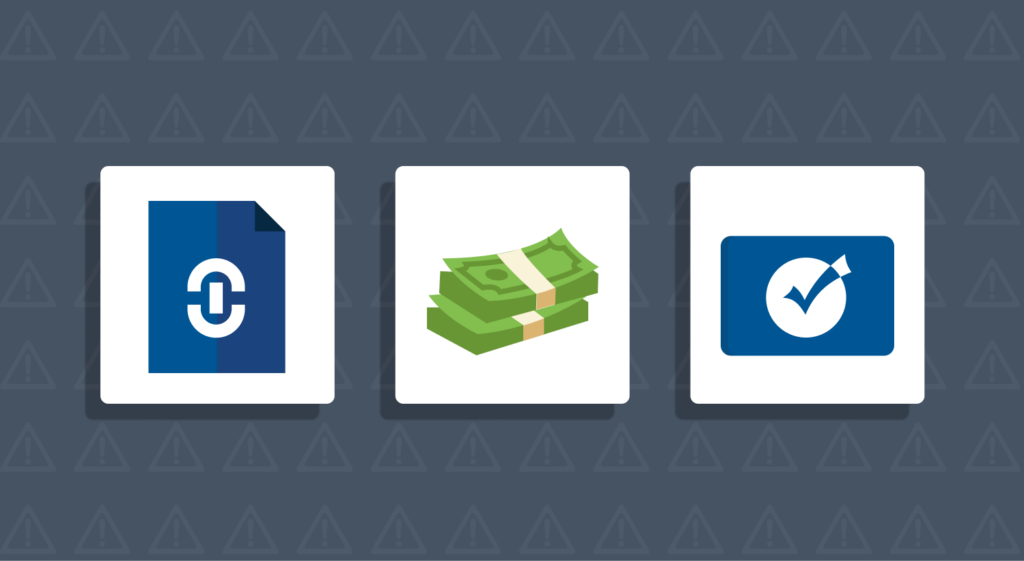
Zelle is one of the most popular payment platforms that encourages peer-to-peer money transfers. However, its popularity is insufficient to make it a hot target for scammers. Here are a few other reasons why these fraudsters target Zelle users:
- Links directly to your debit card or bank account: The app belongs to Early Warning Services (EWS), a FinTech organization run by the seven largest banks in America, including Wells Fargo and Bank of America. Before transferring money on this platform, you must connect it to your bank account. If your bank can’t connect with it, you can connect your Mastercard or Visa debit card to the platform.
- Transactions are quick and irreversible: If you transfer money to another Zelle user, it’s almost impossible to cancel the payment. The platform was specifically designed for users to transfer money to their friends and family, not strangers. The app uses an Automated Clearing House (ACH) payment system to speed up transactions.
- Banks are not responsible for unauthorized EFT via Zelle: There are no strong consumer fraud protection policies that protect users when they make an EFT (Electronic Fund Transfer) through Zelle. But, in June 2021, the Consumer Financial Protection Bureau (CFPB) stated that users who got duped into sharing their account information should get similar consumer protection as though the money was stolen directly from their debit card or other bank accounts.
However, the good news is that, according to an article in the New York Times in 2022, banks and credit unions may begin reimbursing Zelle scam victims.
How to Report a Scam on Zelle

Here are the different ways you can report a scam on Zelle:
- If you have a Zelle account, immediately contact customer support at 1-844-428-8542 or fill out the form on this page.
- File a report with the Internet Crime Complaint Center.
- If it is an unauthorized transaction involving a bank linked to the service, report it to the bank’s fraud department.
- If your bank or credit union refuses to help, report to the CFPB.
